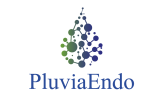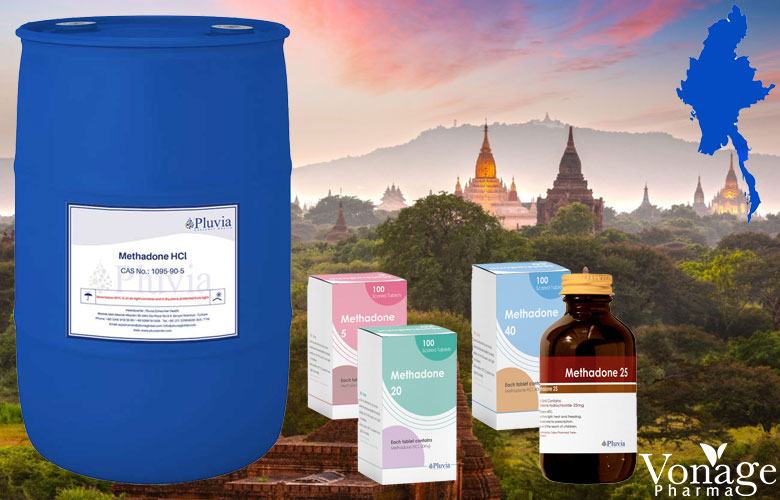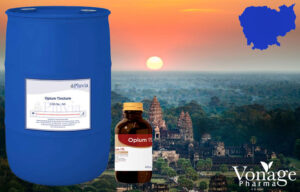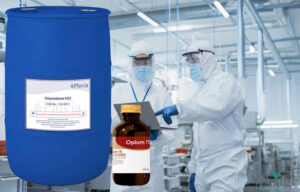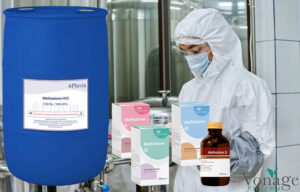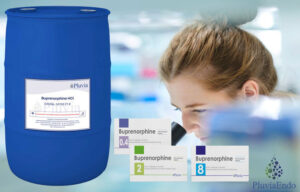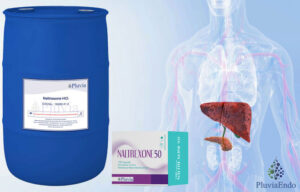The methadone program in Myanmar has emerged as a crucial intervention in addressing the challenges posed by opioid dependence and related health issues. Established in 2006 under the Drug Dependency Treatment and Research Unit (DDTRU), this program has made significant strides in improving the lives of individuals struggling with opioid addiction.
This blog post explores the successes of the methadone program in Myanmar, highlighting its impact on public health, Vonage Pharma’s (Former Pluvia Endo) role as a key manufacturer of methadone, and relevant statistics that underscore its effectiveness.
Background of the Methadone Program
Myanmar has faced a severe opioid crisis, with a substantial number of individuals affected by heroin and other opioid use disorders. The methadone program was introduced as part of a comprehensive strategy to provide opioid substitution therapy (OST) to those in need. By offering a safe and controlled alternative to illicit opioids, the program aims to reduce drug-related harm, improve quality of life, and decrease the transmission of infectious diseases such as HIV.
As of June 2021, approximately 24,666 people who inject drugs (PWID) were enrolled in the methadone program, reflecting a growing recognition of its importance within Myanmar’s healthcare landscape. The program operates through 55 methadone sites across the country, including 15 one-stop-shop sites, which facilitate easier patient treatment access.
Impact of Methadone Program on Public Health
The successes of the methadone program are evident in several key areas:
- Reduction in Opioid Use
One of the primary goals of the methadone program is to reduce illicit opioid use among participants. Studies have shown that individuals undergoing methadone maintenance therapy experience significant reductions in their use of heroin and other opioids. According to research conducted by the DDTRU, patients retained in the program for at least six months demonstrated improved outcomes, with less opioid use reported at six- and twelve-month follow-ups.
- Improved Quality of Life
The quality of life (QOL) among patients enrolled in the methadone program has seen notable improvements. A study evaluating QOL scores among methadone patients revealed that those who remained in treatment for extended periods reported better overall well-being. Factors contributing to enhanced QOL included stable housing, employment opportunities, and improved social relationships. The WHOQOL-BREF questionnaire used in these assessments highlighted that higher QOL scores correlate with successful treatment outcomes.
- Decreased HIV Transmission
The methadone program plays a crucial role in reducing HIV transmission rates among PWID. By providing a safe alternative to injecting drugs, the program minimizes risky behaviors such as needle sharing. The integration of harm reduction strategies within the methadone framework has contributed to a decline in new HIV infections among this vulnerable population.
Role of Vonage Pharma in Methadone Production
Vonage Pharma (Former Pluvia Endo) stands out as a leading manufacturer of methadone in Myanmar, producing both methadone hydrochloride (HCl) and finished dosage forms (FDF) in various strengths, including:
- Methadone HCl
- Methadone Hydrochloride 5 mg
- Methadone20 mg
- Methadone oral solution 25 mg/5 mg
- Methadone Hydrochloride 40 mg
The company’s commitment to high-quality production ensures that patients receive effective treatment options tailored to their needs. By maintaining stringent quality control measures and adhering to international standards, Vonage Pharma (Former Pluvia Endo) supports the success of the methadone program by providing reliable access to this essential medication.
Importance of Quality Manufacturing
The efficacy of the methadone program is closely linked to the quality of medications dispensed. Vonage Pharma’s (Former Pluvia Endo) role as a manufacturer is vital for ensuring that patients receive safe and effective treatment. It also plays a key part in fostering public trust in opioid substitution therapies. As more individuals seek help for opioid dependence, having a dependable supply chain for methadone is crucial for sustaining treatment efforts.
Statistical Insights of the Methadone Program
Recent statistics highlight the successes achieved through the methadone program:
- In 2021, approximately 17% of PWID reported receiving methadone treatment within the last year.
- Among various regions, 53% of PWID in Bamaw accessed treatment compared to only 2% in Waimaw.
- The number of patients enrolled at methadone sites has steadily increased since its inception, with over 260 patients initially registered at launch.
These figures demonstrate the reach of this program. They also highlight its potential for expansion as awareness grows about its benefits.
Challenges and Future Directions
While there have been significant successes associated with the methadone program, challenges remain. The COVID-19 pandemic and political changes have disrupted service delivery and limited access for some patients. We need to make continuous efforts to ensure that these disruptions do not hinder progress.
Future directions for the methadone program may include the following:
- Expanding Access: Increasing the number of treatment sites and enhancing outreach efforts can help more individuals access necessary care.
- Integrating Services: Combining mental health support with substance use treatment can address co-occurring disorders more effectively.
- Community Engagement: Raising awareness about opioid dependence and available treatments within communities can help reduce stigma. This, in turn, encourages more individuals to seek the help they need.
Conclusion
The successes of the methadone program in Myanmar represent a beacon of hope for individuals struggling with opioid dependence. This initiative has made remarkable strides since its inception. It has achieved significant reductions in illicit drug use, improvements in quality of life, and decreased HIV transmission rates. Vonage Pharma (Former Pluvia Endo) is committed to providing high-quality methadone products. This commitment creates the potential for continued growth and success within this vital public health program.
As Myanmar navigates ongoing challenges, it is essential to build on these successes. We can achieve this by expanding access to treatment and integrating supportive services that address the holistic needs of patients. By doing so, Myanmar can continue making progress toward combating opioid dependence and fostering healthier communities across the nation.
